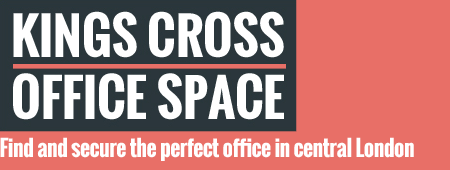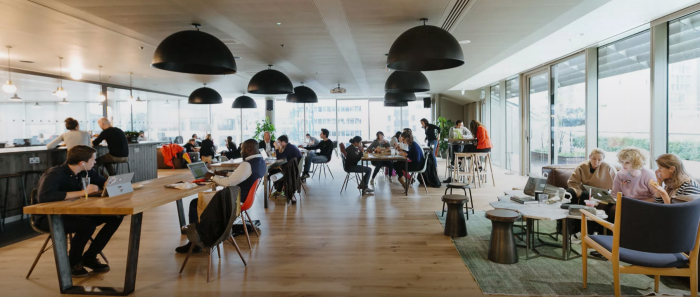People often see Co-Working as a niche way of working; a method exclusively used by creatives and entrepreneurs but never utilised in the corporate world. It’s easy to see why, when the collaborative nature and natural openness of Co-working is overtly avoided in certain sectors. Yet despite the obvious reservations held by some, the Co-working philosophy seems to have infiltrated its way into mainstream thought, and, evolving along the way, has become an unrivalled tool for businesses both small and large.
Over the past few years it has become apparent that the ‘tradition office’ has transformed, or at least in some slower moving cases, is in the process of transforming. Phrases such as agile working, hot desking and flexitime are now so embedded in the modern workplace that you will rarely come across someone who doesn’t have at least an idea of what they are. In the today’s climate companies who want to achieve success are always looking to innovate, and therefore the benefits of the Co-working phenomenon simply cannot be overlooked. Although this way of working will never be fully embraced by the legal and financial industries for example, aspects of it, and certainly the philosophies behind it, will become more commonplace across all workspaces.
Innovations in technology, changes in productivity and having direct access to the “sharing economy” are just some of the factors that have lead businesses outside of the tech and creative sectors to begin looking at this new way of working. Even if they have joined the party a little late.
The modern workplace is made up of such a large demographic that it is not uncommon for graduates and CEO’s to be separated by over 50 years. While this has always been the case, in the office of today it poses a problem. In those 50 years technology has developed at such a rapid rate that one end of the current workforce have live the majority of their life with little or no contact with technology, whilst the other have known nothing else. The reason this disparity becomes an issue is these generations will undoubtable have different ways of working. Is it possible to please both the baby boomers and the millennials? It’s highly unlikely with a traditional office set up. And so to address this dilemma, companies are going to need to develop a workplace strategy that works for both parties and is flexible enough that they can get the most out of all each employee with minimal hindrance to others.
Recruitment has also sparked a change in thought when it comes to the style and structure of the modern workplace. The competition for the best employees is constantly intensifying and the workplace is now a critical tool for attracting the hottest talent. In a bid to attract the cream of the crop businesses are going to have to begin to meet the expectations of millennials and fully embrace the latest methods of working that are more in tune with the younger generation’s way of thinking. Progress has already been made in the legal sector with firms such as Olswang, Herbert Smith Freehills and Mayer Brown already adopting aspects of Co-working and agile working philosophies in order to boost the engagement of their employees and to achieve their wider business goals.
As a system, Co-working lays heavy influence on collaboration and many of the more traditional sectors are slowly seeing the benefits that this collaborative nature can bring. The trade of ‘services for services’ within a collaborative environment has been the success behind many businesses, cutting down on time and money while at the same time promoting their services. Innovation alongside start-ups, openness and knowledge sharing are enabling businesses to effectively use the expansive resources that are available around them and are now readily sought after by a range of industries.
What we are likely to see is the corporate world tailoring their own form of Co-working that excludes the dangers such as security and privacy risks but at the same time gets the most out of employees. The BBC’s recent plans for New Broadcasting House put heavy influence on shared areas to ensure collaboration across departments was made simpler. We are already seeing corporate firms using Co-working memberships for flexible projects and feel that as time progresses reliance on this way of working will begin to grow.
Contact Us
Kings Cross Office Space receive office space availability weekly. If you would like to check our database of available space please use the details below to get in touch with a member of our team.



